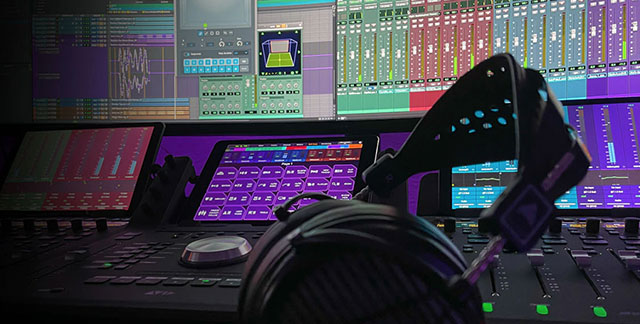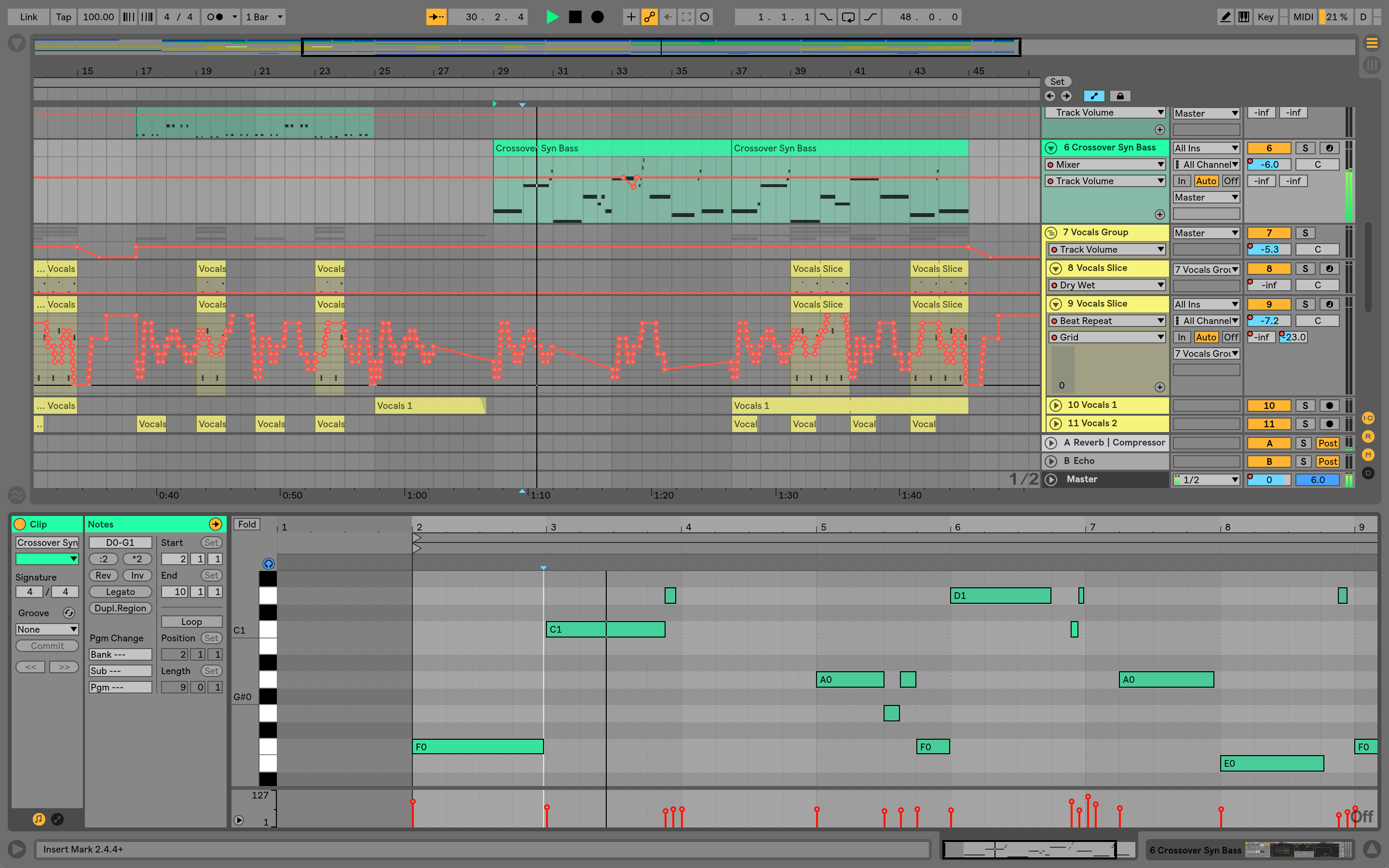Unlocking Ambient Soundscapes: Essential Digital Audio Workstation Tips for Ambient Producers
Finding your flow as an ambient producer can be a truly rewarding experience, but navigating the world of Digital Audio Workstation (DAW) software can sometimes feel overwhelming. At theautonomics.com, we understand this challenge, and we’re here to provide you with practical Digital Audio Workstation tips for ambient producers, helping you craft breathtaking soundscapes with ease and confidence. This article is packed with actionable advice to elevate your ambient music production.
Explore
- 1 Mastering Reverb and Delay: The Cornerstones of Ambient Sound
- 2 Exploring Synthesis and Texture Creation
- 3 Mastering Mixing and Mastering for Ambient Music
- 4 Utilizing Effects Processors for Atmospheric Depth
- 5 DAW-Specific Tips and Tricks for Ambient Production
- 6 Workflow Optimization: Tips for Efficient Ambient Production
- 7 Embrace Experimentation and Find Your Unique Voice
- 8 Conclusion: Mastering Your Ambient Production Journey
Mastering Reverb and Delay: The Cornerstones of Ambient Sound
Reverb and delay are not just effects; they’re foundational elements in ambient music. Digital Audio Workstation tips for ambient producers often center on these two effects because they shape the very atmosphere of your tracks. Mastering their use is crucial for creating the immersive, spacious soundscapes that define the genre.
Understanding Reverb’s Role
Think of reverb as the sonic fingerprint of a space. It’s the way sound reflects and decays within an environment, whether it’s a vast cathedral, a small room, or even an open field. In your DAW, you’ll find numerous reverb algorithms, each capable of emulating different spaces. Experiment with different reverb types – plate, hall, chamber, spring – to discover how they affect the mood and texture of your sounds. Don’t be afraid to layer reverbs for even more complex and interesting results. This is one of the most powerful Digital Audio Workstation tips for ambient producers.
Utilizing Delay for Depth and Texture
Delay adds echoes to your sounds, creating rhythmic patterns and a sense of depth. Similar to reverb, delay offers a vast array of possibilities. From subtle, almost imperceptible delays to rhythmic, repeating echoes, delay can add movement and complexity to your ambient tracks. Experiment with different delay times, feedback levels, and panning to sculpt the perfect delayed soundscape. Effective delay usage is a key component of many Digital Audio Workstation tips for ambient producers.
Exploring Synthesis and Texture Creation
Ambient music thrives on texture. The sounds themselves often take a backseat to the overall atmospheric feel. Your DAW provides a wealth of tools to create these textures.
Synthesizer Techniques for Ambient Textures

Synthesizers are your primary weapon in this regard. Digital Audio Workstation tips for ambient producers often emphasize the importance of exploring synthesis techniques beyond simple melodies. Focus on creating evolving pads, shimmering textures, and drones. Experiment with modulation, LFOs (Low-Frequency Oscillators), and envelopes to create dynamic and ever-changing sounds. Use subtractive synthesis to sculpt your sounds, and additive synthesis to build complex harmonic structures. These are essential Digital Audio Workstation tips for ambient producers.
Utilizing Granular Synthesis for Unique Textures
Granular synthesis is a powerful technique that involves breaking down audio into tiny grains and manipulating them. This allows for the creation of unique, evolving soundscapes that are difficult to achieve with traditional synthesis methods. Many DAWs offer granular synthesis plugins, and exploring them can unlock entirely new sonic territories. This is among the most advanced Digital Audio Workstation tips for ambient producers.
Mastering Mixing and Mastering for Ambient Music
Once you’ve created your sounds, you need to mix and master them effectively. Ambient music, with its focus on atmosphere, requires a nuanced approach to mixing and mastering.

Mixing for Atmosphere and Clarity
In ambient mixing, clarity is key, but it shouldn’t come at the expense of atmosphere. Digital Audio Workstation tips for ambient producers often stress the importance of careful gain staging, ensuring that each element sits comfortably in the mix without clashing. Use EQ (Equalization) to sculpt your sounds and remove muddiness. Compression can help to glue elements together and add punch, but use it sparingly to avoid squashing the dynamics of your sounds. This is a vital aspect of Digital Audio Workstation tips for ambient producers.
Mastering for a Polished and Immersive Sound
Mastering is the final stage of production, where you polish your mix and prepare it for release. Digital Audio Workstation tips for ambient producers for mastering often focus on achieving a consistent level across the entire track, ensuring that it translates well across different playback systems. Use mastering plugins to add subtle warmth, depth, and clarity. Mastering is a crucial aspect of Digital Audio Workstation tips for ambient producers, ensuring your track sounds professional.
Utilizing Effects Processors for Atmospheric Depth

Effects processors are your tools for sculpting the final atmospheric feel of your tracks. These are powerful additions to your Digital Audio Workstation tips for ambient producers arsenal.
Creative Uses of Modulation Effects
Chorus, phaser, and flanger can add movement and shimmer to your sounds, adding a sense of depth and space. Experiment with different modulation rates and depths to discover how they affect the character of your sounds. These effects can be particularly effective when applied to pads and drones. Mastering these effects is a key component of Digital Audio Workstation tips for ambient producers.
Exploring Unique Effects Plugins
Don’t limit yourself to the standard effects. Explore unique effects plugins that offer unusual and experimental sounds. These plugins can add unexpected textures and colors to your ambient tracks, helping you create truly distinctive soundscapes. This is a less common, but extremely valuable Digital Audio Workstation tips for ambient producers.
DAW-Specific Tips and Tricks for Ambient Production
While many principles remain consistent across different DAWs, some specific tips and tricks can greatly enhance your workflow. Digital Audio Workstation tips for ambient producers are often DAW-specific, but some general principles apply.
Automation for Dynamic Soundscapes
Automation is your friend. Use it to create dynamic and ever-changing soundscapes. Automate parameters like volume, pan, filter cutoff, and LFO rates to bring your tracks to life. This is a crucial element of Digital Audio Workstation tips for ambient producers that significantly impacts the final product.
Utilizing MIDI for Control and Flexibility
MIDI (Musical Instrument Digital Interface) offers unparalleled control and flexibility in your DAW. Use MIDI to control synthesizers, samplers, and effects processors, allowing you to create complex and evolving soundscapes. MIDI automation allows for intricate and dynamic sonic textures, a vital technique in Digital Audio Workstation tips for ambient producers.
Workflow Optimization: Tips for Efficient Ambient Production
Efficient workflow is essential for any music producer, and ambient producers are no exception. Streamlining your process will allow you to focus on creativity.
Building Your Ambient Template
Create a template with your favorite plugins and settings pre-loaded. This will save you valuable time and allow you to jump straight into creating music. This is a time-saving Digital Audio Workstation tips for ambient producers.
Utilizing Keyboard Shortcuts
Learn and utilize keyboard shortcuts to speed up your workflow. Keyboard shortcuts can significantly reduce the time spent navigating your DAW, allowing you to focus on the creative process. This is a productivity-boosting Digital Audio Workstation tips for ambient producers.
Embrace Experimentation and Find Your Unique Voice
The beauty of ambient music lies in its boundless creativity. Don’t be afraid to experiment with different sounds, techniques, and effects. The best Digital Audio Workstation tips for ambient producers are often the ones you discover through your own exploration. Find your unique voice and let your creativity flow. Develop your signature sound through consistent practice and experimentation. This is the ultimate Digital Audio Workstation tips for ambient producers.
Conclusion: Mastering Your Ambient Production Journey
By implementing these Digital Audio Workstation tips for ambient producers, you’ll be well-equipped to craft immersive and evocative soundscapes. Remember that patience and experimentation are key. Embrace the process, trust your ears, and let your creativity guide you. Your unique ambient voice awaits.
